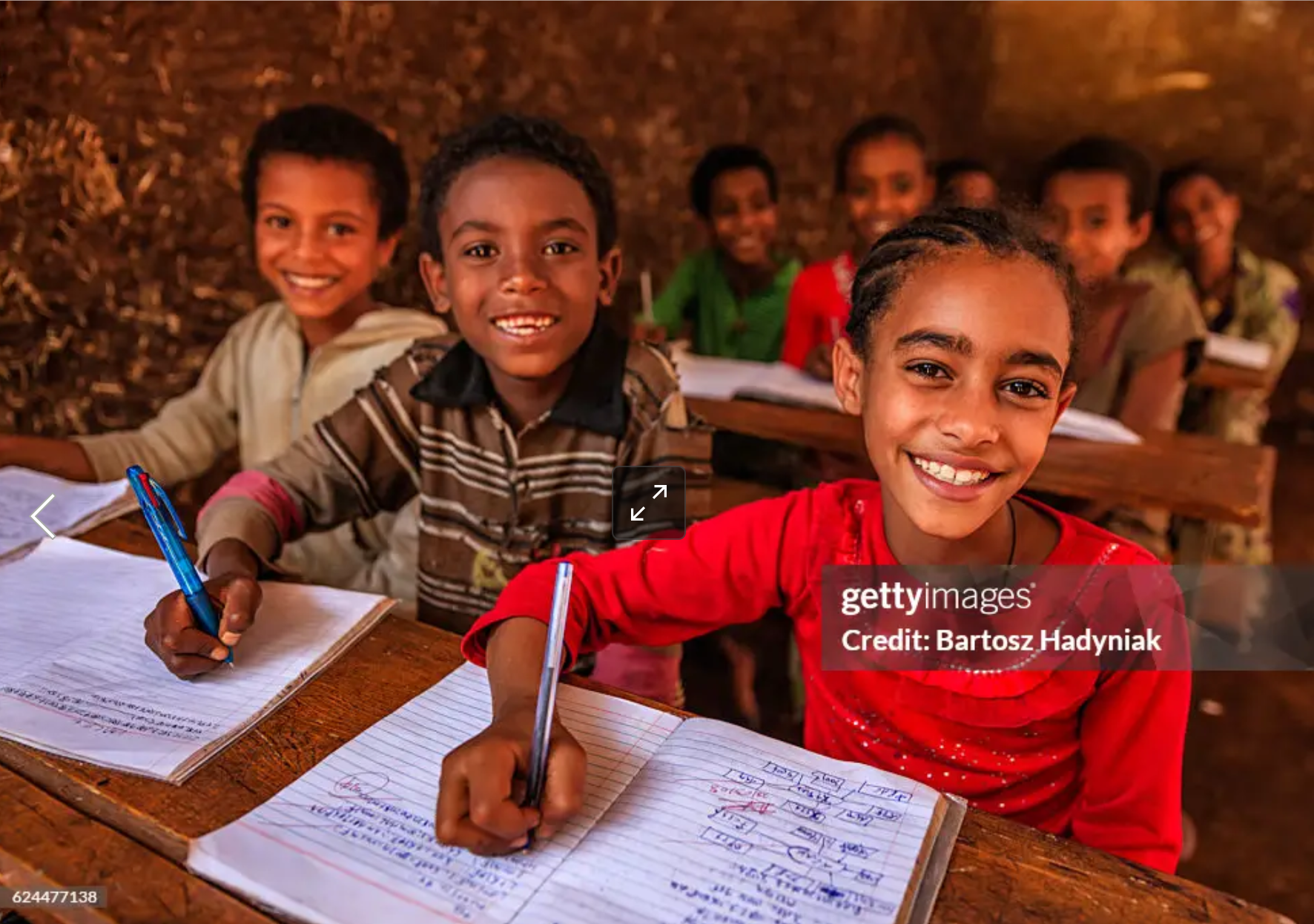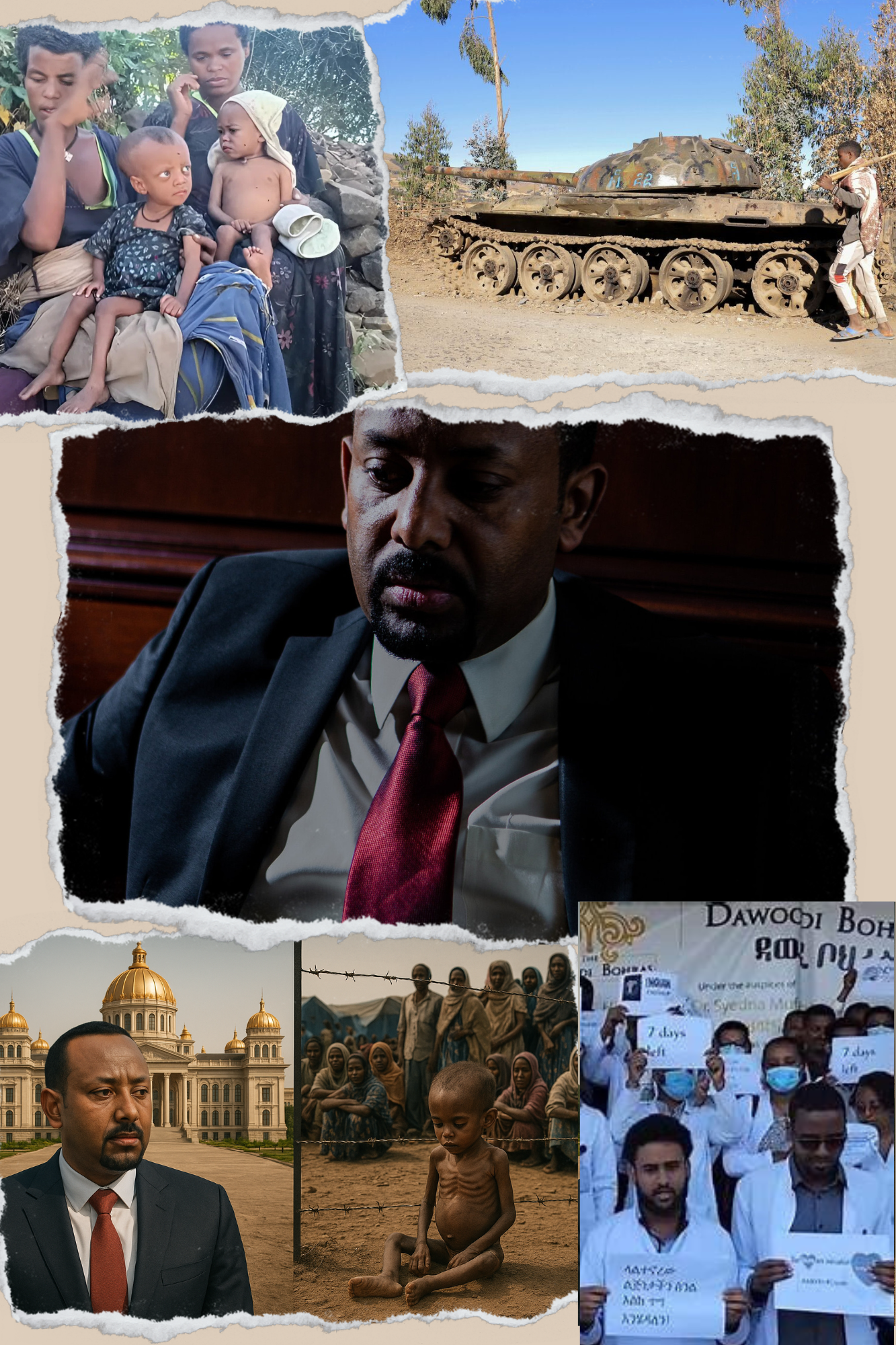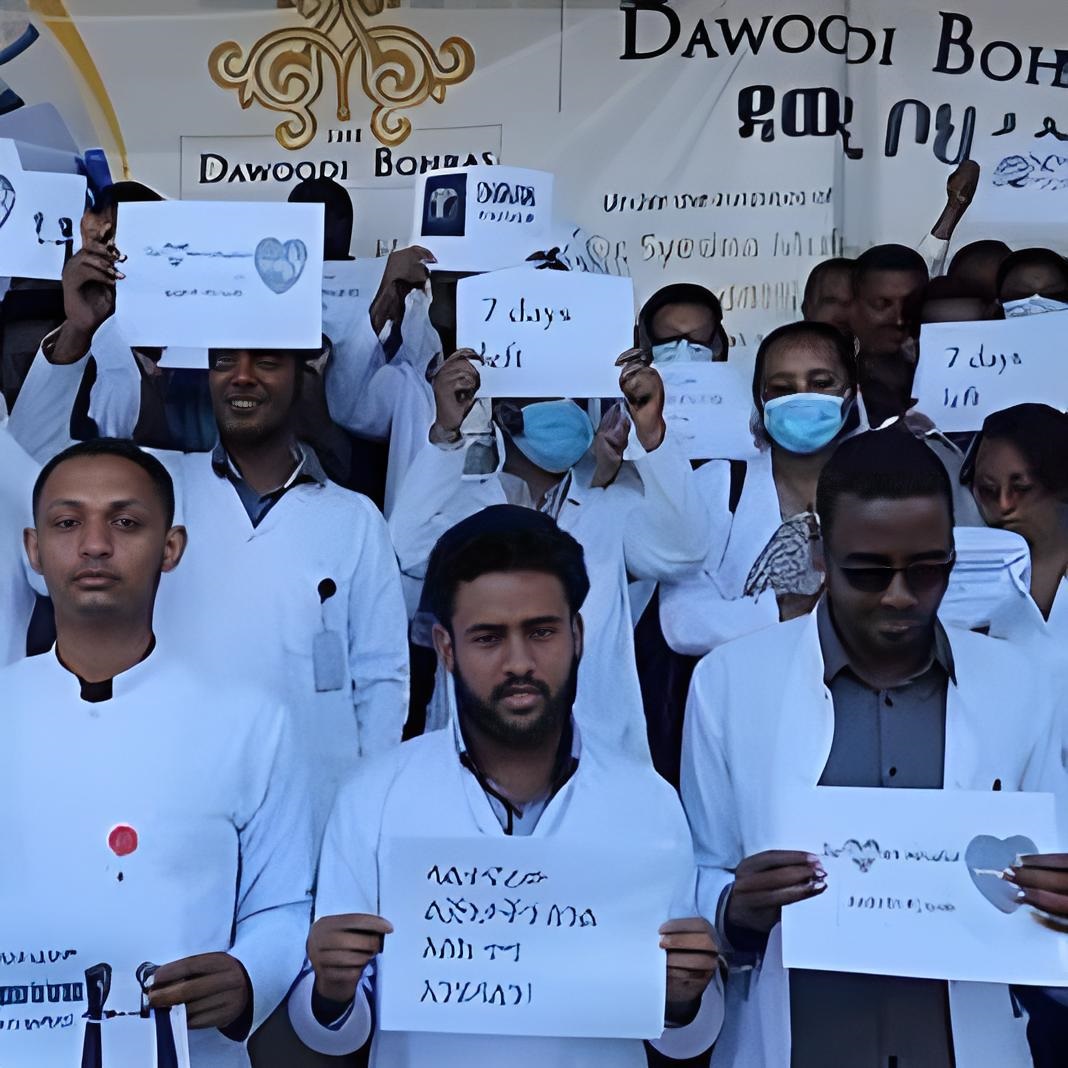Social Media in Amhara Politics: Disinformation and Misinformation in an Existential Struggle

|
Getting your Trinity Audio player ready...
|
Introduction
There is nothing new in voicing concerns over the possible negative effects of social media. Indeed, there is nothing particularly original in stating that these drawbacks are categorical. What is less often mentioned, however, is how the normalization of misinformation and disinformation – two of the main ulcers afflicting social media – causes much more than extreme views and polarized politics. In some cases, its negative effects can be measured in blood.
My interest here is to reflect on the vicious and toxic interactions that currently dominate social media interactions around Amhara politics and its struggle. I have been actively observing these interactions on Facebook, TikTok, Twitter (X) and WhatsApp accounts via group meetings. Of particular concern is understanding why the civility of conversation –even online conversation– has reached such low standards of decency. These social platforms and online forums are rife with aggressive and abusive interactions, dominated by shocking political statements that flirt with murder and larger calls for mass killings. What should have been a positive social movement to defend Amhara interests in the face of state-sanctioned persecution from the current Ethiopian government seems to have degenerated into a cesspit of inner-accusiations, chauvinistic declarations and mob abuse against other Amharas who voiced ever so slightly differing views. This toxic online environment is not only hurtful for users, it is also affecting the Fano insurgency.
For example, some observers suggest that social media sites spur greater schadenfreude—the emotional experience of pleasure in response to another’s misfortune—perhaps as a result of the dehumanization that occurs when interacting through screens on computers and mobile devices. Some studies also suggest a strong tie between heavy social media use and increased depression, anxiety, loneliness and feelings of inadequacy. However, in the case of the Amhara politics, there is an intentional, organized and malicious agenda. Of course, some of the participants involved in the spread of misinformation and fake news may have some personal scores to settle, too.
Psychologists have observed that we lose some of our usual inhibitions when communicating online, especially when our identity is unknown. That can work well to open up debate, but it also removes the social barriers to saying hurtful things. I personally have a first-hand experience that lasted two weeks, a campaign against my character for reasons I still do not understand. It is my belief that the online disinhibition effect has caused immense damage not only to innocent and committed Fano supporters but also to the overall Fano struggle.
The toxic comments expressed in the social media largely fall into two categories: hate speech and online harassment (aka trolling). I personally experienced both categories, and that is one of the motivations I am encouraged to write this. There is a vigorous debate over what constitutes hate speech, but the United Nations defines it as “any kind of communication that attacks or uses pejorative or discriminatory language with reference to a person or a group on the basis of who they are, in other words, based on their religion, ethnicity, nationality, race, colour, descent, gender or other identity factor”.
The hate speech that we observe with regard to the Amhara struggle for freedom is now vigorously directed at Fano leaders. The intention is to create discord and divisiveness among them. I strongly believe that the Ethiopian government is partly behind this campaign of sowing animosity and distrust, which is then also distributed by less informed and reckless people with no critical thinking. To further compound this problem, the resulting toxic online environment means that intelligent supporters of the Amhara struggle are afraid of expressing their views in public or social media. The reason is that they could not stand the character assassination for expressing their views.
One distinguished academic was participating in a Twitter feed/conversation and decided to share his views on the roots of ‘Amhara demonisation’. His views were well presented and explained: some people may have partly disagreed or perhaps wanted to contribute to further the point: in other words, the natural progression of a discussion. However, one loud-mouthed participant attacked him for his comments with a torrent of abuse. If this had been a real debate, it would have been the equivalent of a member of the audience suddenly standing up, interrupting him and shouting a long list of profanities. The old academic swiftly left the space, disappointed by his experience and vowing to never repeat it. One less contribution to the Fano struggle.
I have not seen him in any forum since then. I tried to convince the professor that the young man who viciously attacked him is uncultured or sent by the Ethiopian government to silence you. This is typical of Totalitarian regime’s modes operando. When George Orwell coined the term “totalitarianism,” he had not lived in a totalitarian regime but was merely imagining what it might look like. He referred to two primary traits of totalitarian societies1: one is lying (or misinformation), and the other is what he called “schizophrenia.” Orwell wrote:
“The organised lying practiced by totalitarian states is not, as it is sometimes claimed, a temporary expedient of the same nature as military deception. It is something integral to totalitarianism, something that would still continue even if concentration camps and secret police forces had ceased to be necessary.” Orwell argues that totalitarianism makes literature impossible. By literature, he means all kinds of writing in prose, from imaginative fiction to political journalism; he suggests that verse might slip through the cracks. He writes, too, that there is such a thing as “groups of people who have adopted a totalitarian outlook”—single-truth communities of sorts, not just totalitarian regimes or entire countries. These are deadly to literature as well. What we see in Amhara politics is “groups of people who have adopted a totalitarian outlook”.
My Personal Account
A family member has just informed me that during the past four years or so I have written 67 articles and 2 books on the Amhara Genocide, Amhara displacement, ethnic cleansing and the Fano struggle. I was the first to write a peer reviewed article on the history of Fano and valour2. There was none before that. I was interviewed by foreign and local media to explain what Fano stands for. In those two widely read articles, I have clearly outlined the central concepts of my thesis. These are: Traditionally, the Fano struggle had focused on fending off attacks against Ethiopia.
In recent years, Fano has become a household name, and a crucial movement tasked with saving the very existence of the Amhara population as well as the integrity of Ethiopia. On my recent article I argued that Fano is, first and foremost, fighting for the survival of the Amhara people against whom the Abiy regime has launched a war with chilling echoes of ethnic persecution under a tailor-made state-of-emergency law. Fano upholds, as the songs and poems vividly describe, the equality of all the 85 languages and ethnic groups of Ethiopia under Ethiopianism and is therefore steadfastly pro-Ethiopia. Fano is thus, so to speak, the military wing of the majority of Ethiopians and therefore waging a people’s war against the revanchist, hegemonic, and ethno-nationalist Abiy regime.
Currently, the balance of power appears to be in favor of the Abiy regime in terms of arms and finance but at the end of the day, it is people who use the arms and finance to fight and win the war. A good example of this is the fact that thousands of the regime army are surrendering to the Fano with their advanced weaponry, disillusioned with the war. Fano has the people, and they will take the arms and put them in the hands of the people where they should belong and win the war for themselves and Ethiopia. It is thus a matter of time before Fano decisively wins the war and seizes central power. Already the course of the war has turned decisively in Favor of Fano, which has won every ground battle it has fought with the Abiy regime so far. The yardsticks used to make the above conclusion are based on 1) cause and morale 2) general war strategy 3) intelligence network 4) logistics and terrain 5) provisions. I also dedicated a couple of articles to the late Fano Molla Melaku and Fano Eshete Moges. (Both lost their lives in action)
In a recent article that I published online I urged people to unite in one ‘Centralised Fano Structure’, regardless of who is heading such central structure. I also urged people to avoid fragmentation, parochial thinking or having a limited or narrow outlook or scope that limits the Fano campaign in line with my two theses above. This suggestion or advice was taken out of its context by vicious people. They implied that I was encouraging a fight between Fano groups. It is quite a shocking accusation because it is the exact opposite of what I state in my article. What disappointed me is the large number who can be easily deceived and share the information with out checking the authenticity of the information.
A recent article Why people get more stupid in a crowd3 said it all. Group conformity stands in marked contrast to the “wisdom of crowds” effect, whereby aggregating the opinions of large numbers of people gives answers or predictions more accurate than those of any individual. This happens only when members of a crowd make their judgements independently of each other, and it is most effective when a crowd is diverse. In cohesive groups, on the other hand, where members share an identity, the urge for unity overrides all. So, when Richardson presents us with a picture of a killer whale and asks us how much the creature weighs, he’ll be better off taking the average of the answers we give independently, rather than following the scramble of dots on the screen. We think of the internet as an information superhighway, ….a bias superhighway.
In our struggle for Amhara freedom, social media enables every individual to become a publisher, communicating true or false information instantly and globally. In the ‘post-truth’ era, deception is commonplace at all levels of contemporary life. Fakery affects the struggle and social information undermining trust among our Fano leaders and the capacity of individuals and society to make evidence-informed choices, including on life-or-death issues. In the battle for truth, we all must speak out against false information and fake videos in circulation and forcefully contradict so called activists who promote it. The well informed and educated Ethiopians must contribute to facts and knowledge that help understand and counter false information, to education that builds knowledge and skills in assessing information and to strengthening science literacy in society.
The legendary German theologian Dietrich Bonhoeffer,4 whom the Nazis executed less than a month before the end of World War II, once offered this fascinating comparison of stupidity and malice: “Stupidity is a more dangerous enemy of the good than malice. One may protest against evil; it can be exposed and, if need be, prevented by use of force. Evil always carries within itself the germ of its own subversion in that it leaves behind in human beings at least a sense of unease. Against stupidity we are defenseless.” In our day and age of mass stupidity, it’s hard to disagree with Bonhoeffer’s viewpoint. In day-to-day life, a stupid person can drain you of your most valuable personal resources, including time, energy, and money.
But when it comes to political and geopolitical affairs, stupid people can damage entire nation. That is what is happening in Ethiopia and it is causing immense damage to the Fano movement. In a recent article titled Is the Amhara diaspora an obstacle or a help to Amhara’s survival struggle in Ethiopia?5 the author has aptly captured the phenomenon: ‘Indeed, Amhara diaspora politics is dominated by selfish or less educated orators who nominated themselves as chief political analysts by force, regardless of expertise. Social media and even mainstream outlets dominated and misused by these people to harm or hijack the struggle’.
Challenges and opportunities in the Fano struggle
As mentioned earlier the unchecked social media is getting out of control. Ideally Social media platforms do offer social value. Facebook’s mission statement begins by claiming its purpose is “to give people the power to share and make the world more open and connected.” Socialinteraction is fundamental to our humanity. It is the means through which we create our very worlds. Communication media are crucial in shaping our futures. At their best, social media would help us build better worlds. They would help us become better humans. But social media cannot foster more just societies when their primary goals are growth and profit. Better societies cannot be built on models of humans as data profiles to be matched with advertisers6. However, in Fano struggle the social media tools are mostly and actively and intensively used to weaken the movement and cause distrust among the Fano leaders and fighters.
The TikTok actors and Facebook “activists” are the worst in creating false narratives and mocking the Fano leaders and the gallant fighters. Their audiences are huge compared to serious educative and informative platforms. Both disinformation and misinformation are generated primarily in those popular networks. Youtubers are scrambling for information from the battlefield. They want to be the first to report. Fano leaders are interviewed constantly regardless of the security matters, or without adequate cyber security protections.
Currently, what is severely impacting the movement is disinformation and misinformation7. Both can have significant impacts, but disinformation is particularly harmful due to its intentional nature. Misinformation is false or inaccurate information that is spread without the intent to deceive. This can happen when someone shares incorrect information believing it to be true. For example, if someone mistakenly shares a wrong date for an event, they are spreading misinformation. Disinformation, on the other hand, is deliberately false information created and spread with the intention to mislead or deceive others. This can include propaganda, hoaxes, or malicious content designed to manipulate public opinion or obscure the truth. Even though misinformation, disinformation, and fake news are not new phenomena, they have received renewed interest since political events such as Brexit and the 2016 U.S. Presidential elections. In the Ethiopian case, these phenomena are becoming disastrous, costing human lives and creating bloody war among brothers and sisters.
One other challenge is the phenomenon of self-appointed experts on the Amhara struggle, fano fighting and political and military structures. They have no talent or ability at all. All over the Internet, I am amazed by all the ‘experts, gurus and ninjas’ on Ethiopian matters. My question is, where do we go to get certified as an expert? Most of us who understand the complexities of Ethiopian politics are either shy or reserved. And the exhibitionists and shallow people took the arena. And the sad thing is there is no one to correct them.
As I noted most people seem to be content with these shallow peoples’ simple, unproblematised messages and currently the internet entertainers have monopolized the information flow with their blunt and immoral jokes. Unfortunately, there are spectators, in millions. One can only imagine the cost to our people. I strongly believe that there should be a sort of “expert police” among us. As Eyob Tilahun (2024) correctly pointed that ‘the elite group was expected to shape the orbit of struggle and point forth a strategic direction for freedom fighters. Unfortunately, the role of elites in the survival struggle is negligible. Even though they have a less negative role in the survival struggle, they are responsible for their silence instead of being a voice for the voiceless people of Amhara. Being silent at this time is immoral and it is time to react’.
We need to be brave to voice the danger of unsubstantiated comments and opinions about the battle front because the Internet is infested with exhibitionists, imposters, false experts. These are the last things the struggle needs. I was once to write about why the Amhara struggle attracted these segments (so called activists) of our population. They are too many. I can list at least 20 to 30 notorious ones. My preliminary diagnosis of their behaviour is that many of them are unstable, jobless and perhaps have a history of mental issues. Sadly, these traits have quaified them as chief influencers of online public opinion. It is time for the decent segments of the population to empower themselves and correct the derailed path before it is too late.
According to Eyob Tilahun (2024 July 31), disgustingly, some diasporas deliberately or unknowingly disseminate hatred and divisive ideas among Amhara and unsubstantiated garbage-in, garbage-out ideas without critical analysis. Even some who called themselves educated demarcated themselves at village-level insight instead of united Amhara. Some of the Amhara diasporas intentionally or naively served as weapons of Abiy’s regime. Freedom fighters on the ground welcome unbiased comments and suggestions from the diaspora based on evidence. However, meritless and unfair criticism, the tendency to hijack the survival struggle, and unnecessary interference to twist the hands of freedom fighters for personal interests are completely unacceptable and should be stopped. The diaspora should only play a supportive role, not a decisive one.
Finally, as UNESCO warned, Social media poses ‘existential threat’ to traditional, trustworthy news. In the Ethiopian case it poses existential threat to the Amhara people. Social media platforms must adopt safeguards to prioritize fact-based information to stop foreign and domestic adversaries from spreading false or misleading information about the Amhara people and Fano fighters. Many of these social media platforms, such as Facebook and Twitter, can be hotspots for spreading hurtful rumours, lies, and abuse that can leave lasting scars in the survival struggle.
“The truth is still the truth, even if no one believes it. A lie is still a lie, even if everyone believes it”.
(David Stevens)
“Never underestimate the power of stupid people in large groups”.
(George Carlin)
Editor’s Note: The views expressed in articles published by East African Review are those of the individual authors and do not necessarily represent the perspectives of the editorial team or East African Review as an organization. The publication of any opinion piece does not imply endorsement by East African Review. We encourage our readers to critically assess the content and form their own opinions. We welcome your feedback and reflections; please share them in the comments below or email us at [email protected]




